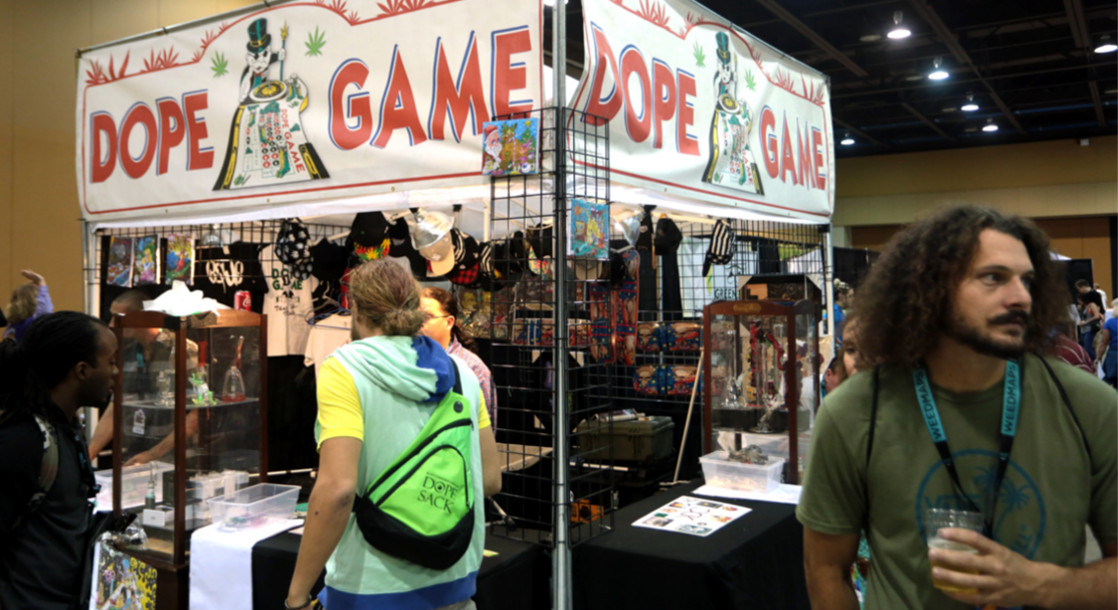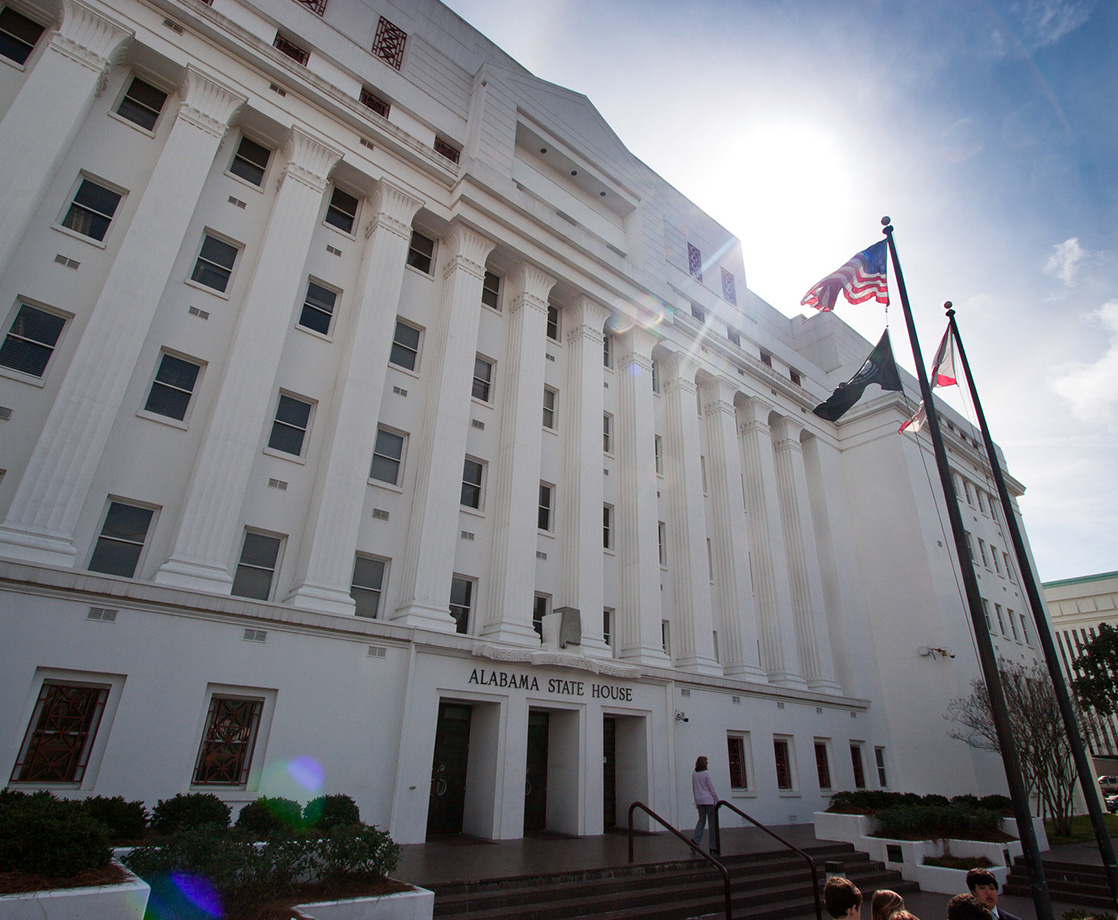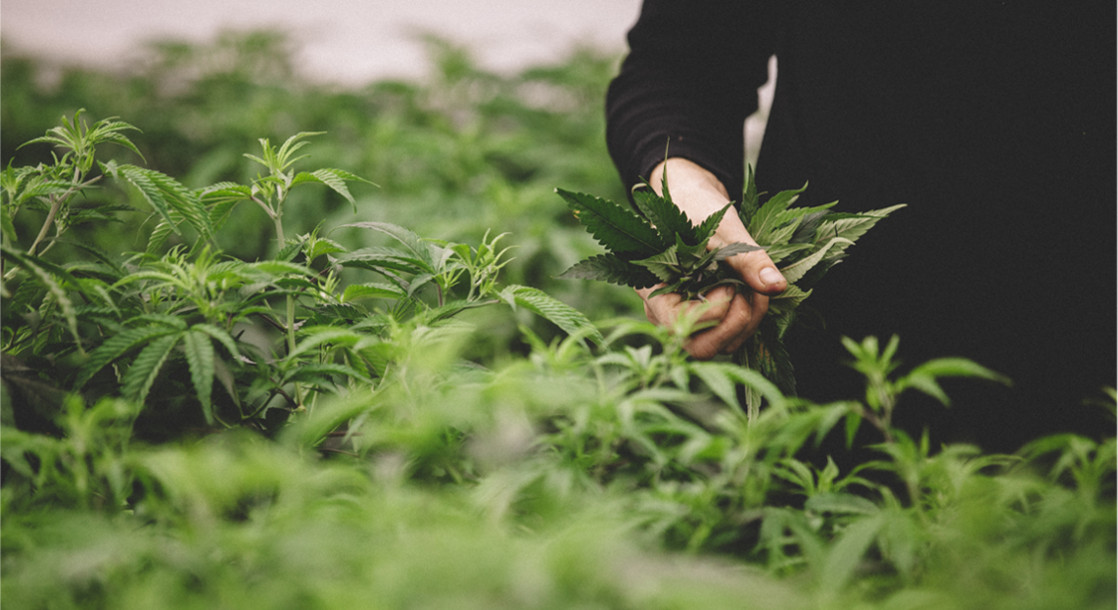Photo via Gage Skidmore
Even though it’s illegal to sell cannabis in Washington D.C., canna-businesses have been taking advantage of a legal loophole in order to sell some of their popular product for years now. The Metropolitan Police Department initially allowed the grey market to operate with little interference, but has recently been ramping up efforts to crack down on the city's cannabis “gifting economy.”
The district's voters approved Initiative 71 back in 2014, which legalized adult use, possession, and home cultivation of cannabis, but still doesn’t allow retail sales. The law does permit an adult to give cannabis as a gift to another adult, however — a provision which some canny entrepreneurs have been using as a loophole to sell marijuana. Several new companies quickly sprang up to meet the demand for legal weed, offering “free gifts” of cannabis to anyone who made a donation to their business.
In addition to businesses offering “free” weed for pickup or home delivery to individuals, a number of cannabis “gifting” events began to appear around the city. Vendors at these events hawk a variety of items, including baseball cards, t-shirts, comic books, or stickers — but every item is accompanied by a side of cannabis. These events were initially held in secret, but promoters gradually grew more bold, and today you can find a publicly-advertised marijuana gifting event almost any day of the week.
“In the beginning, we were very discreet,” a D.C. cannabis entrepreneur known only as Mangani told WAMU. “The events would bounce around. You had to be in the cannabis community to even know that an event was going on.” Now, although some of these events remain discreet, several are advertised openly on social media. Several of these events even offer public consumption options, like free dab bars, which is unquestionably illegal under the city’s current framework for marijuana.
In the first few years of legalization, both black and grey market sales of cannabis continued without too much interference from local police. But as the popularity and public visibility of these gifting businesses and events has spread, street dealers also began to attract more attention from law enforcement. In 2016, D.C. cops busted 220 people for selling weed, more than were arrested in 2013, before Initiative 71 even passed.
More recently, the city's law enforcement and regulatory agencies have been turning their attention toward gifting events. So far this year, at least 30 people have been arrested and charged with selling cannabis through these social functions. Last week, the city Department of Consumer and Regulatory Affairs (DCRA) revoked the business licenses of two venues that had been hosting cannabis events. The city's Alcoholic Beverage Regulation Administration (ABRA) has also supported efforts to enforce penalties on venues hosting such gatherings.
Many individual grey market cannabis entrepreneurs are willing to take the risk of getting busted once or twice, but the threat of getting shut down for good is making clubs more wary of hosting quasi-legal markets. “It’s the venue owners at a lot of these events that are taking most of the risk, because most of the vendors don’t have a business license, so they’re not going to get their business license revoked,” D.C. cannabis attorney John McGowan said to WAMU. “It’s going to be the venue owner who will have their basic business license, their ABRA license, their food license revoked.”
A majority of residents and officials in the nation's capital support the full legalization of licensed retail sales, but Congress has blocked the city from spending any funds on creating a regulatory agency to oversee legal pot sales via riders to a federal budget bill. Last fall, Sen. Thad Cochran (R-Mississippi) proposed a version of the bill that did not include the ban, which would have finally given the city leeway to kickstart a legal sales market. But until this federal ban ends, D.C. is stuck in a legal grey area with tons of demand for legal weed, but limited means to supply the demand.










